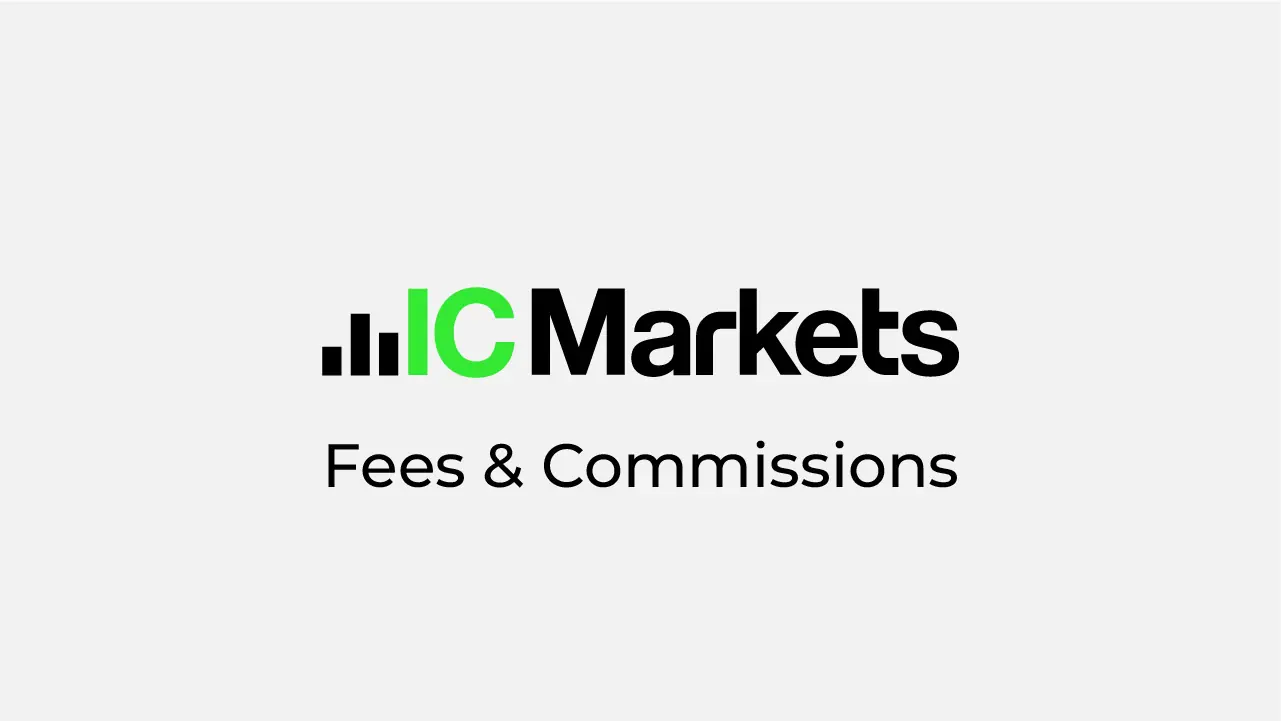Explore IC Markets fees and commissions, covering spreads, commissions, withdrawal costs, and account types. Learn how to minimize costs and maximize profits.
IC Markets Fees and Charges Overview
Understanding the full spectrum of IC Markets fees and charges is crucial for managing costs and optimizing your trading strategies. IC Markets is known for its competitive fee structures, appealing to both novice and professional traders alike. This detailed guide covers the essential fees you will encounter, including trading fees, non-trading fees, financing fees, and more, to ensure you're well-prepared before you start trading. For more comprehensive insights, visit the IC Markets Review.
IC Markets Trading Fees
IC Markets' trading fees are based on spreads, commissions, and financing fees, which vary depending on the account type you choose. The Standard Account offers commission-free trading but with slightly wider spreads, while the Raw Spread account provides tighter spreads with a commission charge. Financing fees, also known as swap fees, apply to positions held overnight. For an in-depth look at different account types, explore the IC Markets Account Types section.
Spreads
The spread, which is the difference between the bid and ask price, is the primary cost of trading in the Standard Account. Spreads on the Raw Spread account start from 0.0 pips for pairs like EUR/USD, making it ideal for high-frequency traders. The Standard Account, while commission-free, has spreads starting from 0.6 pips. To learn more about how spreads differ across various accounts, visit the IC Markets Account Types page.
Commissions
IC Markets charges commission fees on its Raw Spread accounts, with rates starting at $3.50 per lot per trade (or $7 per round turn). These commissions make the Raw Spread account highly attractive for professional traders who prefer lower spreads. For further information about commissions and how they apply to different account types, check out the IC Markets Account Opening section.
Financing Fees
IC Markets financing fees, also known as swap fees, are incurred when holding positions overnight. These fees are based on the interest rate differential between the currencies or instruments involved in the trade. Swap fees can be positive or negative depending on your position's direction. For more details, visit the IC Markets Review to understand how financing fees are calculated for different accounts.
IC Markets Non-Trading Fees
IC Markets offers a competitive fee structure that includes not only trading-related costs but also non-trading fees. These non-trading fees encompass withdrawals, deposits, and inactivity, which are essential for traders to consider when managing their accounts effectively. One of the advantages of IC Markets is its minimal non-trading fees compared to other brokers, making it an attractive option for those who prioritize low operational costs. The broker ensures that most deposit methods are free, while inactivity fees are non-existent, appealing to both active and passive traders. However, it’s essential to review specific fees such as withdrawals and deposit methods to avoid unexpected costs.
IC Markets Withdrawal Fees
IC Markets stands out for its low withdrawal fees, with most withdrawal methods, such as e-wallets and local bank transfers, being free of charge. However, international bank transfers may incur a fee depending on the banks involved. For a more detailed look at the withdrawal options, visit the IC Markets Withdrawals page.
IC Markets Deposit Fees
IC Markets does not charge deposit fees for the majority of payment methods, including bank transfers, credit cards, and e-wallets like PayPal. However, it's a good idea to verify with your payment provider if there are any external fees. You can find more information on the IC Markets Minimum Deposit page.
IC Markets Inactivity Fees
Unlike many other brokers, IC Markets does not charge inactivity fees, making it a great option for traders who may not be trading regularly. This feature is especially beneficial for long-term traders or those with a more passive trading approach. For more details on inactivity fees, visit the IC Markets Demo Account page.
IC Markets Swap and Overnight Fees
IC Markets swap and overnight fees are incurred for positions held overnight. These fees are determined by the interest rate differential between the currencies or instruments traded. Traders using long-term strategies should pay close attention to these fees. For more information, visit the IC Markets Review to learn about how overnight fees are applied.
Conclusion
Effectively managing IC Markets fees and commissions is key to maximizing your trading profitability. With clear and transparent fees, including spreads, commissions, and non-trading costs, IC Markets is an excellent choice for traders at all levels. To explore further and make informed decisions, visit the IC Markets Review page.
FAQs
What are the different fees associated with IC Markets accounts?
IC Markets offers a range of fees, including trading fees (spreads, commissions) and non-trading fees (withdrawal, swap fees). These fees vary depending on the account type and trading instruments. Learn more on the IC Markets Account Types page.
Does IC Markets charge commission fees?
Yes, IC Markets charges commission fees on its Raw Spread accounts, at a rate of $3.50 per lot per side. The Standard Account, however, is commission-free. For more details, visit the IC Markets Account Types section.
What is the minimum deposit required to open an IC Markets account?
The minimum deposit to open an account with IC Markets is $200. This requirement applies across all account types. For more details on deposit methods and requirements, visit the IC Markets Minimum Deposit section.
Are there any hidden fees with IC Markets?
No, IC Markets is known for its transparency. All fees, including spreads, commissions, and non-trading fees, are clearly outlined with no hidden charges. For a full breakdown, visit the IC Markets Review.
What customer support options are available for IC Markets traders?
IC Markets offers 24/7 customer support via live chat, phone, and email, ensuring any issues are resolved promptly. For more details, visit the IC Markets Customer Support page.
Published by:
![]() Jaxon Maddox
Jaxon Maddox
